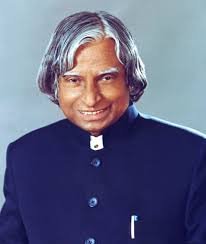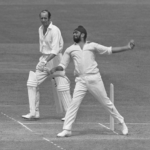
Dr. Avul Pakir Jainulabdeen Abdul Kalam, famously known as APJ Abdul Kalam, was a source of inspiration to all Indians and, at large, the rest of the world.
Born on October 15, 1931, in Rameswaram, Tamil Nadu, he hails from very ordinary beginnings to become the 11th President of India (2002–2007) and earn the title of “Missile Man” for his significant contributions toward the advancements of India’s missiles and space programs.
Early Life and Family Background
Born in a modest Tamil Muslim family in the island town of Rameswaram, Kalam’s father Jainulabdeen owned a boat and operated it, while his mother, Ashiamma Jainulabdeen, was a homemaker.
Such was their surrounding but rich in values, spirituality, and sense of community.
It is a rare occurrence for anyone to talk less of the importance of family and especially how his parents played a pivotal role in his life. His mother played a critical role in molding his character as he imbibed from her character values like discipline, humility, and perseverance.
The Unbreakable Bonds with His Mother
Deep affection and respect for the mother are the roots of Kalam’s connection with his mother. In the autobiographical account,
Wings of Fire, he lovingly remembers how she ensured that food was available to him even when the family was financially poor. She used to miss a meal or two for making sure that Kalam and his siblings had adequate food, which shows how selfless and full of unconditional love towards her children she was.
Ashiamma was a source of not only physical nourishment but also inspiration in terms of emotional and moral support.
It was because of this love that Dr. Kalam imbibed at his place of warmth-the home, supported him to read, reflect, and even wish for the impossible.
When Kalam recollected and pondered upon the stories his mother used to narrate from both the Quran and the Bhagavad Gita,
he could find nothing but teachings that were both complementary and from different religious texts. And these made a very profound impact on his worldview, raising him to cherish diversity, inclusion, and unity—an attitude he adopted all through his life.
Sacrifices She Made
Life in Rameswaram during Kalam’s childhood was not easy by any stretch of imagination. The family lived in a simple modest home, and there were some days of hardship. Yet, Ashiamma was not undeterred and bravely went about the household chores. She insisted on quality education for her children at the cost of some personal sacrifice.
For a mother in those times, especially in rural India, managing the education of the children along with the entire household on very meager resources was nothing short of a Herculean task. Yet, Ashiamma did not flinch and insisted on providing Kalam with the best of opportunities.
Often, Kalam would speak of how his mother spent a considerable part of her day in the kitchen, cooking meals for perhaps 10 or 12 people, many of whom were guests whom she was hosting.
This very ability to stretch limited resources and her sense of hospitality left an impact on Kalam, and he went about even his public life with similar values of generosity and service.
The Lasting Impact on Kalam’s Character
The values that Kalam learned from his mother molded his visions of leadership and service. His mother had ingrained simplicity, hard work, and compassion in him, which had a bearing not only on his personal life but on his professional and public behavior as well.
Whether he was a scientist or the President of India, Kalam remained earthy, humble, and connected to the common man.
As such, Kalam was very inclusive in his leadership qualities and a fighter for uplifting people at the margins of society, just like his mother had done for them while they were in striking poverty.
He believed that proper leadership was service to the people, especially to the poor, and that progress should reach every individual, not a few privileged ones.
Kalam’s Tribute to His Mother
There was much gratitude expressed in the speeches and writings of Dr. Kalam for his mother, whom he declared he loved the most.
He believed that it was the foundation of his achievements built by his parents, particularly his mother, who sacrificed much for the welfare and education of the children. He never forgot even when he shot up to great heights in the fields of science and governance.
These make Kalam’s relationship with his mother a poignant reminder of the quiet, oftentimes unreckoned sacrifices parents make for their children.
It goes on to be a testimony to the fact that greatness is not achieved in isolation but is built on the bedrock of family support, love, and guidance.
Conclusion
Extraordinary achievements in leadership of the nation’s missile and space programs and many more accomplishments, including serving as a president, are in the tale of his life. Yet, on this extraordinary journey are silent substrata of his mother Ashiamma, whose support, sacrifices, and values formed him into a seer, human-being-leader, at large.
While success is gauged by material achievements, this world reminded one that life was also the sum of relationships nurtured, values upheld, and love shared and given.
Ashiamma’s legacy lives on through Kalam’s life and work, making her integral to his story as much as his contributions to the nation.
Also visit- HOMEPAGE



